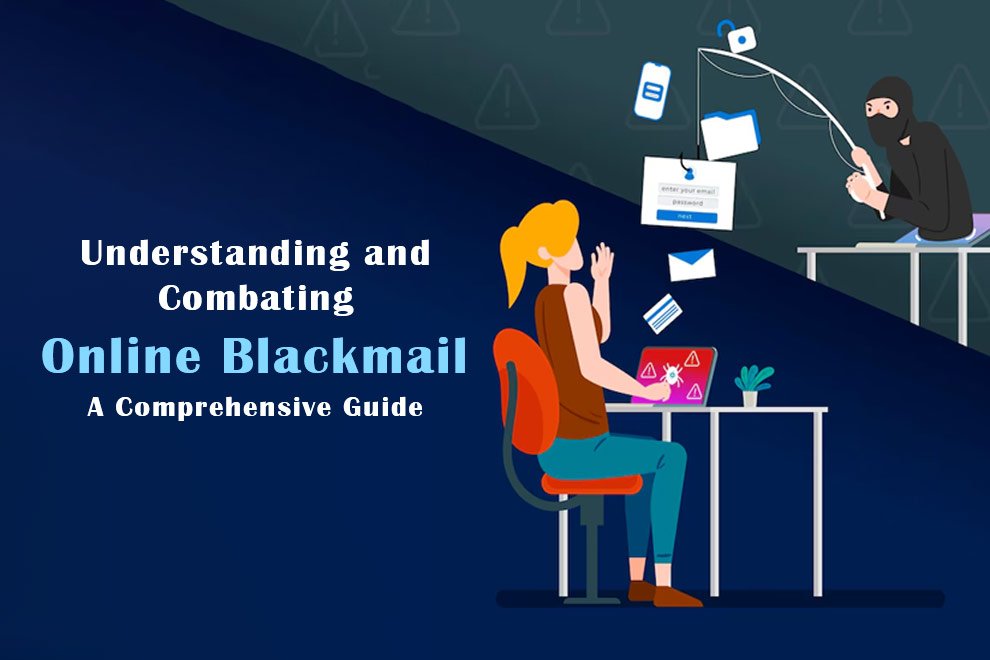In today’s digital age, the threat of online blackmail has become increasingly prevalent. Online blackmail involves cybercriminals obtaining sensitive or compromising information about an individual and threatening to expose it unless a ransom is paid. This form of extortion can have severe emotional, financial, and reputational consequences. In this article, we will explore the nature of online blackmail, provide practical life hacks to protect yourself, and answer some frequently asked questions to help you stay informed and safe.
What is Online Blackmail?
Online blackmail, also known as cyber extortion, occurs when someone uses the internet to threaten or intimidate another person into giving them money, services, or other benefits. The blackmailer typically demands payment in exchange for not revealing private information, such as intimate photos, videos, or personal data.
How Online Blackmail Works
- Gathering Information: Cybercriminals may hack into your accounts, use malware to infiltrate your devices, or exploit social engineering tactics to obtain sensitive information.
- Making the Threat: Once they have the information, they will contact you, often via email or social media, and threaten to release the information unless their demands are met.
- Escalation: If the victim does not comply, the blackmailer may escalate their threats, causing significant distress.
Common Scenarios of Online Blackmail
- Sextortion: Threatening to release intimate photos or videos.
- Corporate Blackmail: Targeting businesses with threats to leak sensitive corporate data.
- Financial Data Theft: Stealing financial information and threatening to expose it.
- Impersonation: Using stolen identities to commit crimes or damage reputations.
Lifehacks to Protect Yourself from Online Blackmail
1. Strengthen Your Digital Security
- Use Strong Passwords: Ensure all your accounts have strong, unique passwords. Utilize a password manager to keep track of them.
- Enable Two-Factor Authentication (2FA): This adds an extra layer of security to your accounts.
- Regular Updates: Keep your software, apps, and operating systems up to date to protect against vulnerabilities.
2. Be Cautious with Personal Information
- Limit Sharing: Be mindful of the personal information you share online, especially on social media.
- Check Privacy Settings: Regularly review and adjust your privacy settings on social media platforms.
- Think Before You Click: Avoid clicking on suspicious links or downloading attachments from unknown sources.
3. Secure Your Devices
- Use Antivirus Software: Protect your devices with reliable antivirus and anti-malware software.
- Regular Backups: Frequently back up your data to an external drive or cloud service.
- Encrypt Sensitive Data: Use encryption tools to protect sensitive information on your devices.
4. Stay Educated
- Awareness: Stay informed about the latest cyber threats and tactics used by cybercriminals.
- Training: Consider taking cybersecurity training to enhance your knowledge and skills.
5. Responding to Threats
- Do Not Panic: Stay calm and do not engage with the blackmailer.
- Document Everything: Keep records of all communications and threats.
- Report to Authorities: Contact local law enforcement or cybercrime units. In the U.S., you can report to the FBI’s Internet Crime Complaint Center (IC3).
FAQs about Online Blackmail
What should I do if I am a victim of online blackmail?
If you find yourself a victim of online blackmail:
- Do not pay the ransom.
- Cease communication with the blackmailer.
- Document all interactions.
- Report the incident to the authorities and any relevant online platforms.
Can blackmailers be traced?
Yes, blackmailers can sometimes be traced, especially if law enforcement agencies are involved. However, cybercriminals often use sophisticated techniques to hide their identities, making it challenging.
Is paying the ransom a good idea?
Paying the ransom is generally not recommended. There is no guarantee that the blackmailer will stop demanding more money or refrain from releasing the information. Additionally, paying supports and encourages illegal activities.
How can I tell if an email threat is legitimate?
Be cautious of any unsolicited email that demands money or threatens you. Signs of a phishing email include poor grammar, urgent language, and unfamiliar email addresses. When in doubt, do not respond and report it to the appropriate authorities.
What are the legal consequences of online blackmail?
Online blackmail is a serious crime with severe legal consequences for the perpetrator, including fines and imprisonment. Laws vary by country, but most have stringent penalties for cyber extortion.
Can cybersecurity services help protect against blackmail?
Yes, cybersecurity services can provide various protective measures, including monitoring your online presence, securing your data, and offering guidance on how to respond to threats.
Conclusion
Online blackmail is a serious and growing threat in our digital world. By understanding how it works and taking proactive steps to protect yourself, you can significantly reduce your risk of falling victim to these malicious activities. Remember to stay vigilant, keep your personal information secure, and report any suspicious activity to the authorities. Your digital safety is paramount, and being prepared is your best defense against online blackmail.
Also Read: Why The Education Sector Needs To Prioritize Cybersecurity










